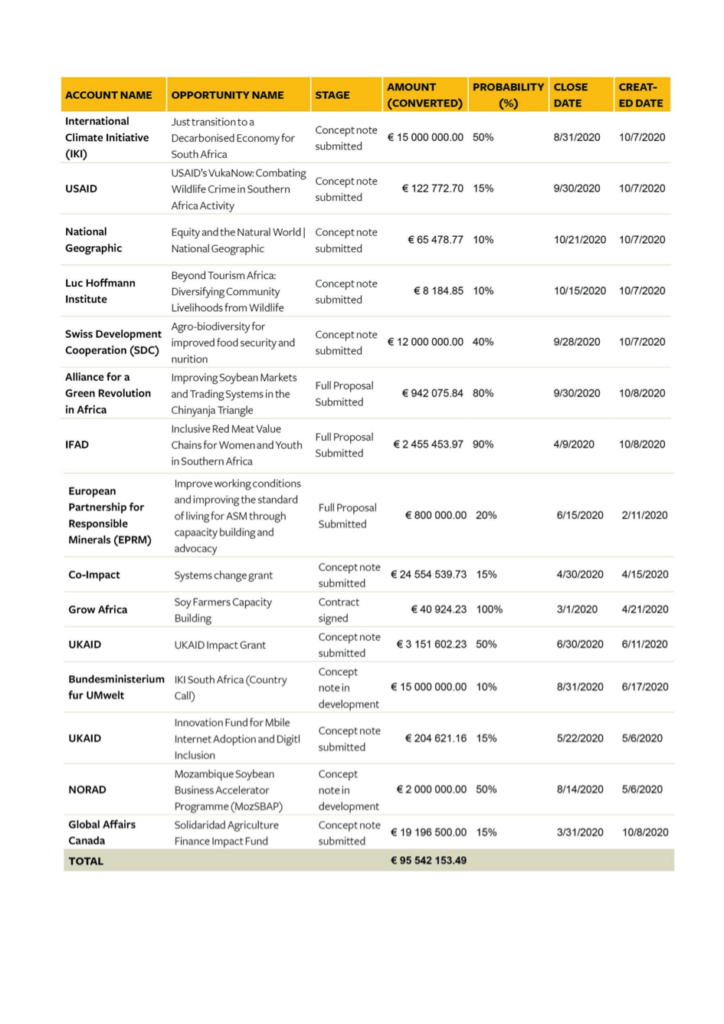Annual Report 2020
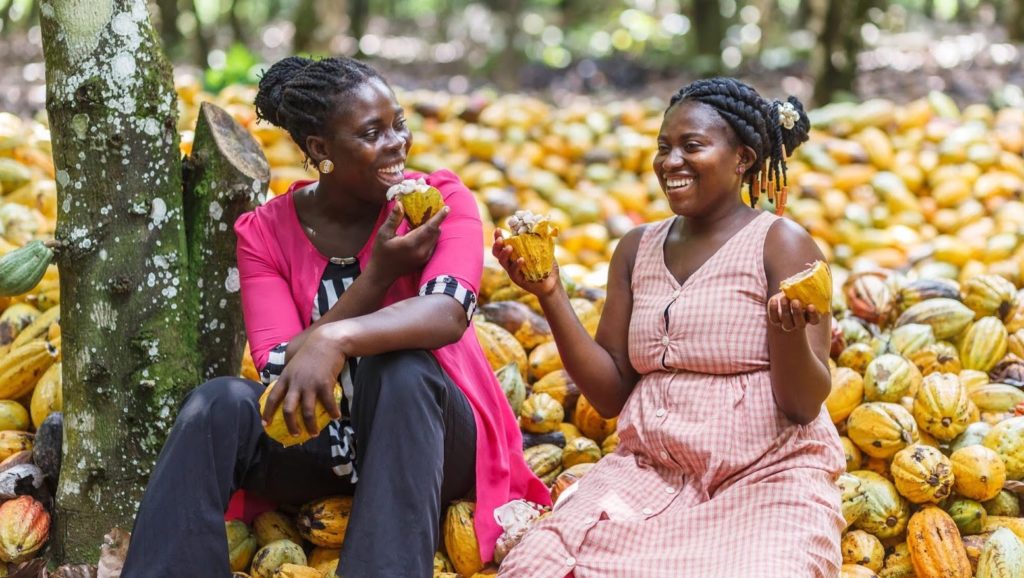
Highlights
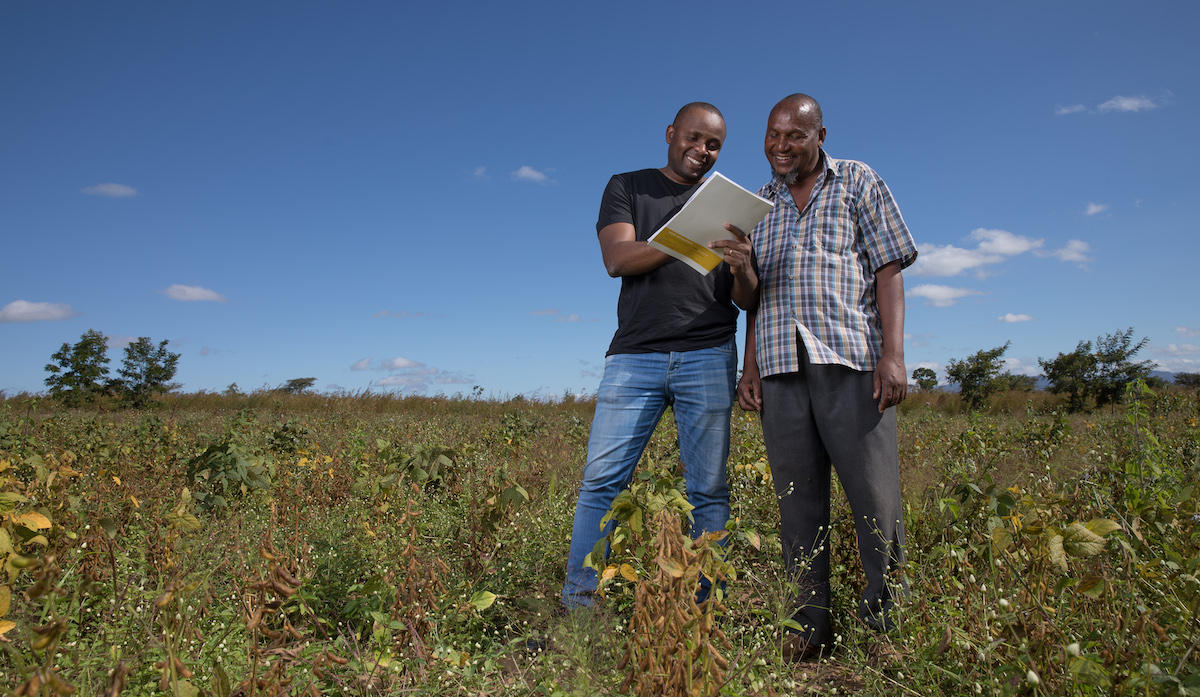
Soy
In 2020, 29,220 smallholders adopted Roundtable on Responsible Soy Association principles. 48 service providers have achieved self-sustenance, and there was a 28 percent increase in women in decision-making positions.
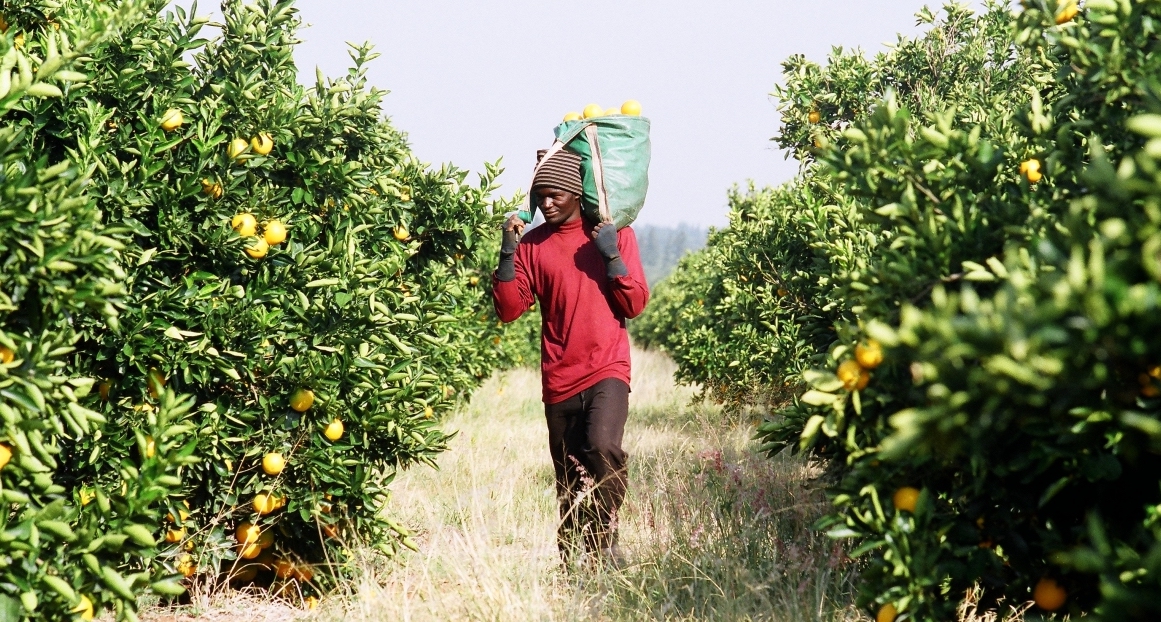
Fruit & vegetables
A total of 2,252 farmers are implementing good practices in PFC Fruits and Vegetables, and 24 service providers have achieved self-sustenance, servicing 1,116 smallholder farmers.
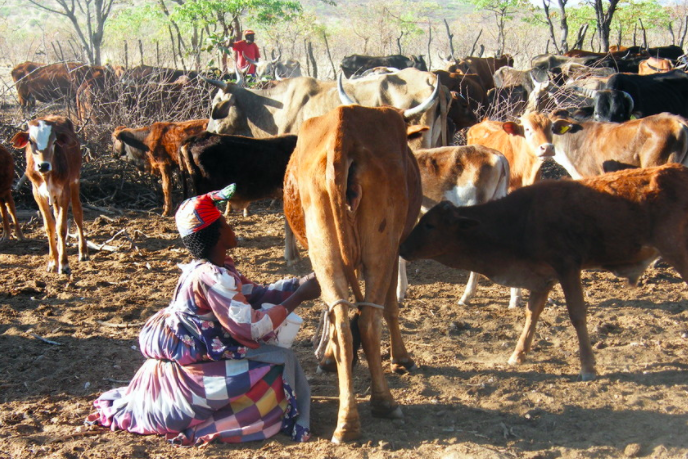
Livestock
2020 saw a 68 percent increase in women in decision-making positions, and 435 smallholder farmers obtaining loans from 18 credit service providers.
Results
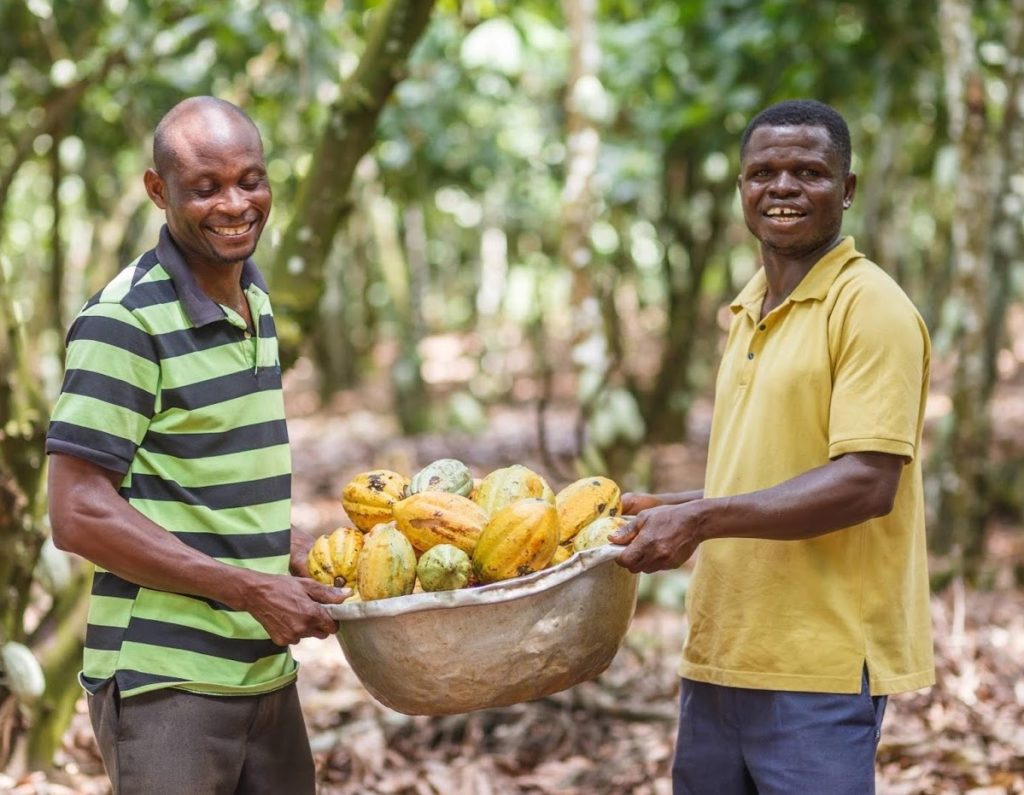
A deep dive
Impact realized
In 2020, we grew our impact not only in quantity, by reaching more farmers and engaging more stakeholders, but also in quality by emphasizing inclusivity and helping women break down barriers in traditionally male-dominated sectors.
In 2020, 7,668 smallholder farmers were trained in good agricultural practices across all the PFC projects and 36,537 adopted the practices.
- The Fruit and vegetable project trained 2,138 farmers on GAP from 71 farmer groups/associations. A total of 2,252 farmers adopted GAP principles.
- The Soy Project trained 4,582 smallholder farmers from 58 associations mainly on the Round Table on Responsible Soy Association (RTRS) principles. The cumulative number of farmers that had adopted these principles by the end of 2020 adds up to 29,220.
- The Sugarcane project trained 534 smallholder farmers from 19 associations on good practices, mainly Bonsucro principles and other complementary on-farm practices. The cumulative number of farmers that had adopted good practices in the Sugarcane project by the end of 2020 was 4,675.
- The Livestock project trained a total of 414 smallholder farmers on holistic rangelands management. These included farmers from other communities who showed interest in the practice after seeing the results from the project site. The total number of farmers that have adopted good practices was at 390 by the end of 2020. These farmers make up 20 livestock groups.
24 service providers in the Fruit and Vegetables project have achieved self-sustenance. About 1116 smallholder farmers are receiving service from these service providers. A total of 559 smallholder farmers obtained loans from credit service providers. The share of women in decision-making positions is 36%. The Soy project had 48 service providers that had achieved self-sustenance by the end of 2020 and were supporting a total of 26,240 smallholder farmers. Nine (9) credit service providers gave loans to 20,080 smallholder farmers in the Soy project. The share of women in decision-making positions in the Soy project is 28 percent. The Livestock project has 61 service providers that have achieved self-sustenance. They are servicing a total of 200 smallholder farmers. 18 credit service providers gave loans to 435 smallholder farmers. The share of women in decision-making positions is at 65 percent.
The number of Civil Society Organisations (CSOs) with improved lobby and advocacy (L&A) capacity was 20 by end of 2020 under the SAF Africa GAP project. The SAF Africa GAP project contributed to the review and improvement of nine (9) policies at regional and country levels. There are 16 MSP that was convened and in which the SAF Africa GAP project team participated. A total of 145 stakeholders participated in these MSPs.The SAF Mozambique Fruit and vegetable project forged partnerships with nine (9) institutions for the implementation of sustainable practices in the sector. One policy (MozBoPa) has been adopted due to the project efforts in Mozambique. Ten MSPs were convened in Mozambique with about 65 stakeholders participating in the dialogues.The SAF GRSB project had eight CSOs with increased L&A capacity. Public and private sector actors because of the project efforts adopted three policies, mechanisms and regulations. Three MSPs were convened with about 25 stakeholders participating in the dialogues during 2020.
About 60,735 hectares of land are under better management practices under the LI – SAF Mazabuka project. The project has capacitated five (5) CSOs to participate in dialogues effectively and 25 institutions to implement sustainable landscape management solutions. The project convened five MSPs during 2020 where a total of 120 stakeholders participated. To date, the project has implemented 11 pilots. Government bodies for landscape-level management solutions are implementing four mechanisms.
Innovation Areas
Results
Innovating and adapting
Throughout our innovation areas, teams delivered on creative visions, increasing gender inclusion and using digital tools to make critical agricultural services more accessible.
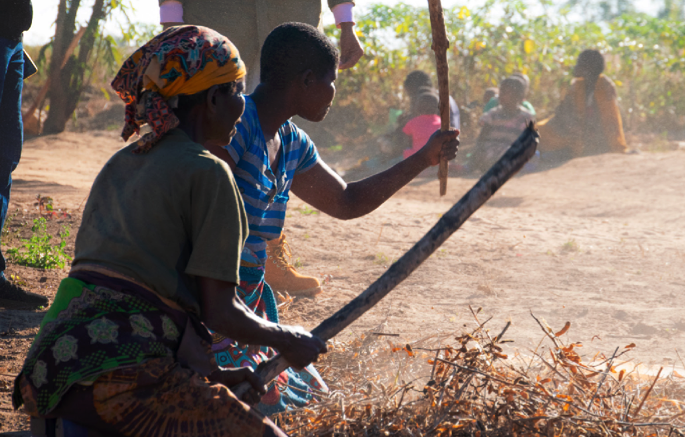
The 2017 gender portfolio analysis concluded that despite having a strong, even potentially sector changing MASPII and strategies on gender inclusivity, Solidaridad needed to take big steps to ensure that inclusivity interventions translate into sustained Programme activities across all four result areas. At the beginning of the MASPII implementation (2016), the overall trend of gender inclusivity in Solidaridad showed that there had been little progress with regards to gender inclusivity within Solidaridad’s projects (and across the four result areas). The 2017 REC-wide baseline studies on gender inclusivity showed that the number of projects with a gender component was almost non-existent, while the average gender score was below 30 percent, which was problematic because gender-related activities were only carried out as a box-ticking exercise, which had little promise in terms of realizing sustained changes in gender inequality.
Sub-Saharan Africa is falling behind the rest of the world in agricultural productivity, leaving millions of farmers in poverty. Yields in Sub-Saharan Africa are just 25 percent of the global average. Within Zambia, small-scale farmers yield just 20 percent of what commercial farmers yield per hectare on the same quality of the land. They also tend to use recycled seed, which is low quality, either because they do not have access to or cannot afford high quality certified soy seed. Access to finance is therefore a major constraint in farmers improving their yields and incomes. Through Solidaridad’s intervention, the following results we obtained:
- Farmers in the Scheme (2018/2019 season): 50
- Total Production from 2018/2019 Farmers: 916 MT
- Farmers in the Scheme (2019/2020 season): 523 farmers
- Total down payment (50%) by farmers: Euro 6,640 (ZWM 104,600)
- Certified Seed Made Available: 523 bags (13,075 Kgs)
- Crop Repayment by soy crop: 39,225 Kgs
- Repayment Rate: 100%
The uptake between the first and second season this scheme has been offered was over ten times more. This shows that farmers are seeing the benefits of this facility from their peers and are catching on. This facility is also an innovative way to extend financing than through a typical loan, where cash must be repaid monthly. In this facility, farmers had to pay a down payment for the seed, de-risking the scheme to only farmers that can save and put in a contribution upfront. Since the seed provider can provide good quality inputs and all the seed is coming from one place, this provides for consistency of supply and ensures the financing expended is used directly for seeds and applied uniformly. Additionally, the repayment of the facility is in-kind using bags of soy crops that have been harvested. This makes it easier for farmers to pay back in a familiar ‘currency’ that they understand. Since Good Nature Seed also has off-takers, they can sell the crop to recoup their money. This market linkage also creates additional value for the farmers and it is envisioned that the offtakes can be extended and Good Nature Agro could potentially (i) act as an aggregator on behalf of the farmers, or (ii) Solidaridad can help arrange similar offtakes for our farmers.
Although there has been substantial pressure to increase finance for climate mitigation and adaptation, the reality remains that very little of the existing climate finance goes to agriculture. Farmers, especially smallholders, are amongst the most vulnerable to climate change and are instrumental in safeguarding the food security of the majority of the World’s population. Agriculture can also play a crucial role in supporting carbon sequestration from the atmosphere and reduce global emissions. Yet challenges around measuring climate impact – particularly adaptation, which can be quite subjective, monitoring small properties efficiently, and managing disbursements have kept smallholder farmers from accessing these funds. Farmers also often lack the technical knowledge and access to inputs and finances to adopt behaviours that result in climate adaptation and mitigation.
The intervention from Solidaridad has enabled the Climate Vulnerability Assessment (CVA) Dashboard, which is currently being used, to provide actionable data to Project Managers and to assist Solidaridad’s research efforts. Farm Resilience is still under development and has therefore not yet had any measurable results. However, there have been results with the digital innovations that form part of the Farm Resilience framework, such as Z’wardy and Ping! Where farmers are contributing to landscape innovation through the deployment of good agricultural practices.
Solidaridad has built Soil testing labs where micro-entrepreneurs from the community are trained to operate soil scanners, which immediately deliver reports on soil quality and carbon content. They employ local youth using bicycles to collect soil samples from farmers. The scanner stays in town, analysing numerous samples a day, at $5/test. Within two days, the youth provide reports and recommendations to farmers on improving soil health.
Kvuno Soil Labs is a post-revenue, pre-profit start-up social enterprise established by Solidaridad in September 2019. The company sets up soil labs in rural districts that provide soil-testing services to smallholder farmers. Each soil lab has between two and seven staff members that collect test soil samples and should return results within 48 hours of collection. Kvuno intends to complete 5 million soil tests by the end of the year 2025.
More than farmers have already had their soils tested by Kvuno since the start of the intervention. Kvuno has set up seven laboratories and it is in the process of setting another four laboratories this year. Kvuno will have 25 laboratories by the end of 2021. Farmers have seen improvements in the quality and quantity of their yields and they have sent us images to attest to this. In other locations where these labs have been set up, farmers have increased their yields and incomes by 21% and 29% respectively. For instance, one of the farmers in Chongwe district who has been producing tomatoes for years heard about our soil-testing services through the radio programme. He had his soils tested. The results provided gave him the soil texture, his soil fertility status and the fertilizer recommendation. He followed the fertilizer recommendation plan from the soil-test report. The tomato seed he would plant in his field will produce lower yield and smaller-sized tomatoes. When he came to the lab, he was able to show us his increase in yield by the number of tomatoes he had harvested and the size of the tomatoes from his farm.
Most significant changes
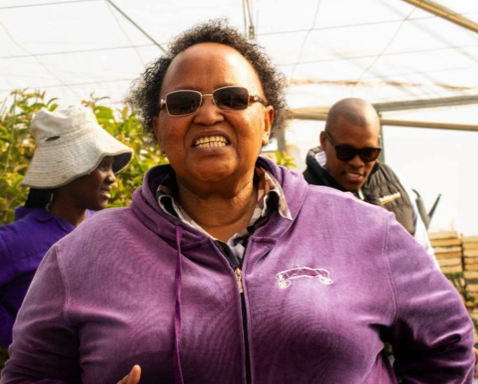
The journey towards good agricultural practices to compete in a high-value market
The Farmer2Market project makes use of technology, networking, cluster approach, as well as extension services. Farmers who have been linked to markets by the project include Mrs. Nomxolisi Mathe, who was trained on the LocalG.A.P checklist. In 2019, the Solidaridad team facilitated a market contract between Mrs. Mathe and Yukon International Pty Ltd (Yukon). Yukon (located in the Gauteng Province), a global leader in speciality vegetables and microgreens, specializes in the daily shipment of high-quality fresh baby vegetables and microgreens. Yukon was interested to work with entrepreneurial smallholder farmers participating in the Farmer2Market project.
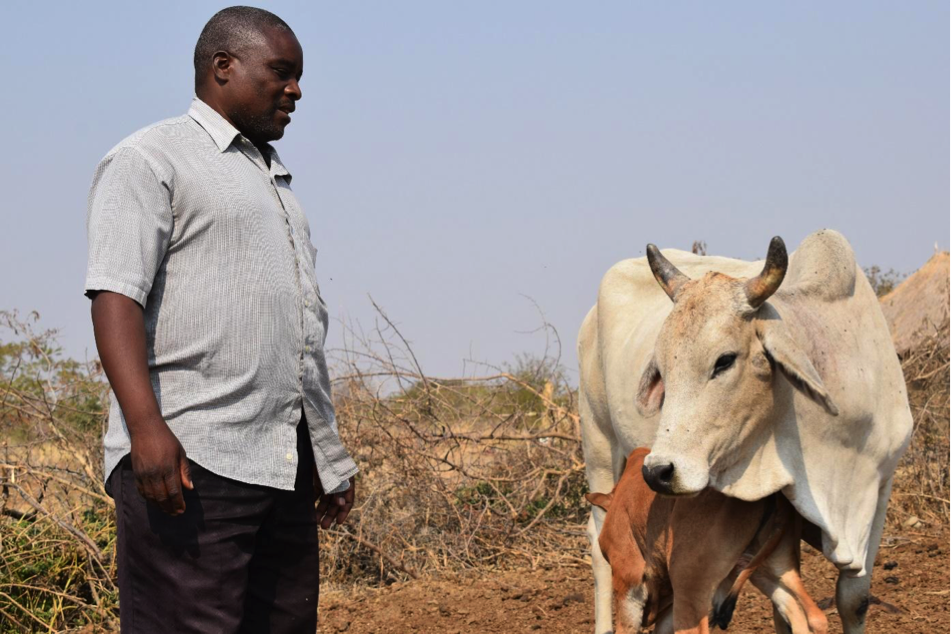
Sustainable livestock management improves smallholder farmer livelihoods and landscapes in Zambia
A group of 52 young women and men from Mazabuka Province have been awarded certificates for completing training in hand leathercraft as a way of adding value and improving income at the household level. They have already started selling the leather and some of the proceeds they made were reinvested into village banking. Through village banking, there has been increased access to finance, aggregated funding for investment, and reduced loan default.
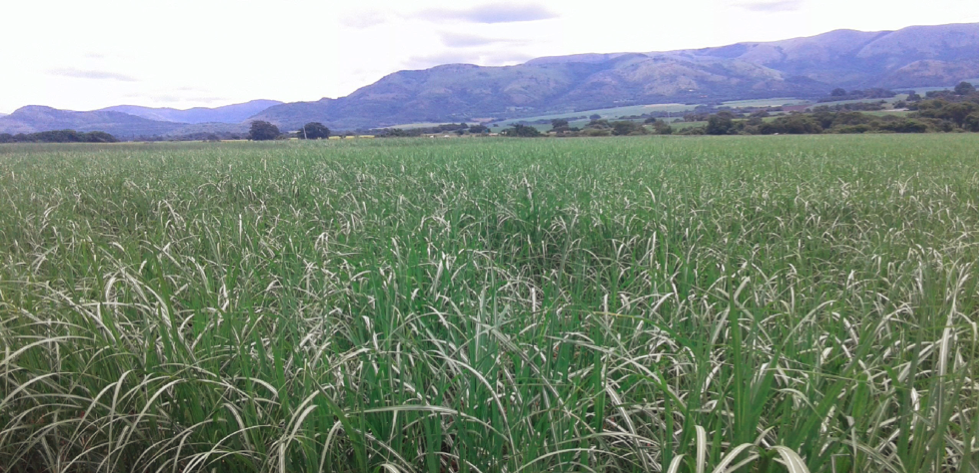
Business acumen improves sugarcane smallholder farmers’ productivity
Solidaridad partnered with ILLOVO-NOODSBERG and SEZELA, the local mills to which the growers supply sugarcane, as well as AGRI-IQ an accredited training provider to offer the growers an innovative and practical training approach. The focus of the training was equipping the growers and the service providers with essential business understanding and financial management skills as well as good agricultural practices through gamified learning tools and case studies.
Organization & governance
Developments
Stronger together
Throughout the Covid-19 pandemic, we relied on collaboration, creativity, and commitment from all team members to deliver results while ensuring a safe environment for all team members and stakeholders. We also continued building meaningful partnerships and engaging proactively in communications to elevate discussions.
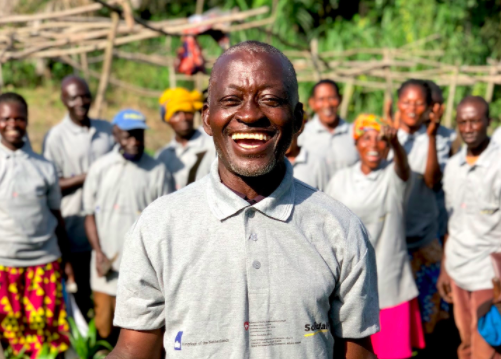
To ensure employee wellness and performance amid the Covid-19 pandemic, REC SAF developed working from home guidelines in line with country-specific regulations and the region’s Covid-19 prevention procedures. REC SAF maintained remote wellness check-ins and coordination of regional staff while ensuring Covid-related disruptions in attracting and retaining a pool of high-value talent was managed. As part of performance management REC SAF completed a performance review cycle with 100% staff participation.
REC SAF continues to be a core member of the Integrity management team, which successfully redesigned and implemented a new Integrity framework resulting in the redevelopment of the organizational Code of Conduct and Whistle-blower documentation. REC SAF actively participated in the recruitment of the Global HR Manager. REC SAF Operations focused on building accurate and timely use of information in PLAZA and actively participated in providing network-level feedback to improve the efficiency of this platform. The development of an online document management system for REC SAF enabled the administrative systems to run smoothly albeit during remote working conditions.
The REC had set itself a target of being a thought leader and partner of choice at both country level and regional level. At a regional level new partnerships were established with the Alliance for a Green Revolution in Africa (AGRA) who recognised our peerless work on smallholder soybean production in the region and invited us for an unsolicited proposal to expand this work. This partnership creates an opportunity for the continental team of Solidaridad to position itself within the conversations about truly transformative work in smallholder agriculture on the continent.
Furthermore our contribution to shaping the global partnership with Syngenta, has positioned our work in digital technologies and smallholder value chains at a global scale. This has led to invitations within the Syngenta group for our participation in events such as the Sustainability Summit to share our perspectives on the role technology can play in creating pathways for sustainable agricultural development.
Additional global partnerships with URUS, Hendrix Genetics, Solynta and N-Drip continued to cement our role as curators of relevant technologies for smallholder farmers across a number of commodities. In the advocacy space, we were able to bring Trust Africa into the Power of Voices partnership, successfully.
Within key programme countries, new partnerships were initiated with GiZ in Zambia, the Centre for Scientific and Industrial Research (CSIR) and the Gauteng Department of Agriculture and Rural Development (GDARD) in South Africa and New Horizons in Mozambique – have ensured our work continues to attract coalition of change partners.
The PMEL team initiated two end line evaluations for the Sugarcane and LI Mazabuka project. The team also initiated a Gender Cost Benefit Analysis study to determine the business case for gender and social inclusion in the REC SAF programmes. A behaviour change needs assessment was also initiated in quarter three (3) of 2020. The final reports for all the studies are expected to be concluded by the end of March 2021.
The Covid-19 pandemic and consequent government restrictions have brought about unprecedented challenges across the globe. The need to flatten the curve has forced us to limit our movements and minimize in-person gatherings, which has called for us to revisit our strategies and consider creative digital solutions as a means to continue functioning remotely, serving our farmers and engaging our partners and stakeholders.
In our endeavour to promote the adoption of good agricultural practices across all our programmes, we have taken this as an opportunity to develop online training videos to share with our farmers through various platforms such as YouTube and the organisation’s WhatsApp chatbot, Wadi. The sugarcane videos were, translated into Zulu and Chichewa, and the horticulture videos translated into Nyanja, Portuguese, Shona, Xhosa and Zulu. As we reach the end of our second Multi-Annual Strategic Plan and subsequently, the end of some of our programmes, this will ensure farmer ownership and the continuity of our impact beyond the programme lifespan.
We have continued to pursue our thought leadership agenda by positioning ourselves as knowledgeable industry players in 6 webinars across the region. One of the webinars was The 2030 African Food & Employment Revolution Global Virtual Seminar in collaboration with IDH Sustainable Trade Initiative, Smart24 TV, The Netherlands Food Partnership, Wageningen University & Research and the magazine on global issues, Vice Versa. The seminar was held on the 26th of November from 11 am to 1:00 pm EAT and saw 400 Zoom participants, almost 7,000,000 global social media viewers and over 500,000 Linear TV viewers in Uganda, East Africa and the Continent as a whole.
While the adoption of Digital channels is rapidly becoming accepted as the new normal, the majority of our work still requires that we have boots on the ground. We kicked the year off with a marketing campaign to launch one of the recent additions to our digital solutions toolkit, Kvuno Soil Labs. This was a multifaceted campaign in Zambia with various activities including an SMS competition, a jingle, a skit, radio shows and field day activations. The month-long campaign aimed to encourage smallholders to test their soil while increasing brand visibility, educating farmers on the importance of soil testing and building new partnerships with other civil society organizations, NGOs and local ministries. We reached 325 soil tests during the campaign and continued to get organizational and individual walk-ins after the campaign, which led to a current total of 4,200 soil tests almost a year later.
As we will be transitioning into a new Multi-Annual Strategic plan, our ambition for 2021 is to establish localized value chains that are visible at a programme level while building our credibility and amplifying the voices of our farmers
Finance
